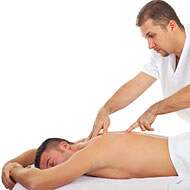Evidence Based Yoga Practice Sessions
First round results support the potential of Yoga as a supportive treatment of patients of psychosomatic conditions. This is truer for those who are on antidepressants but who are only in partial remission. The aim and objective of this article is to put forward additional data. This with regard to the intervention with Yoga practices, concentrating on character differences in psychological, emotional, and biological processes that affect treatment outcome.
For this study 37 men and 26 women were enlisted in the study. Of these 28 completed the intervention, pre- and post-involvement appraisal data. The involvement comprised 25 sessions led by senior Sivananda yoga teachers.
Totally there were 5 courses of 20 Yoga sessions each. All participants were identified with psychosomatic conditions, albeit in partial remission. Psychological and biological features were evaluated pre- and post-involvement, and members rated their mood states before and after every session.
After the Yoga sessions, major reductions were revealed in cases of depression, anger, anxiety and psychotic symptoms in the 28 completers. Fourteen of these finalists showed reduction levels post- Yoga involvement. Those who had abated symptoms were at variance from the non-remitters. This was particularly at intake on a number of traits and on physiological measures; this showed a greater capacity for emotional regulation. Participant’s moods got better from before to after the Yoga sessions.
In conclusion, we can safely say that Yoga is a promising intervention for psychosomatic disorders. For one thing, it is cost effective and easy to put into practice. Besides, Yoga creates a lot of beneficial emotional, psychological, and biological effects. These are all supported by observations of the study. The physiological techniques are particularly helpful since they afford objective markers and guidelines of the processes and efficacy of yoga intervention. These things will further help guide supplementary clinical application of Yoga in psychosomatic disorders and other health problems, and future research on the processes and mechanisms.
Read more articles from the General Discussion Category.

 Find Pose
Find Pose

